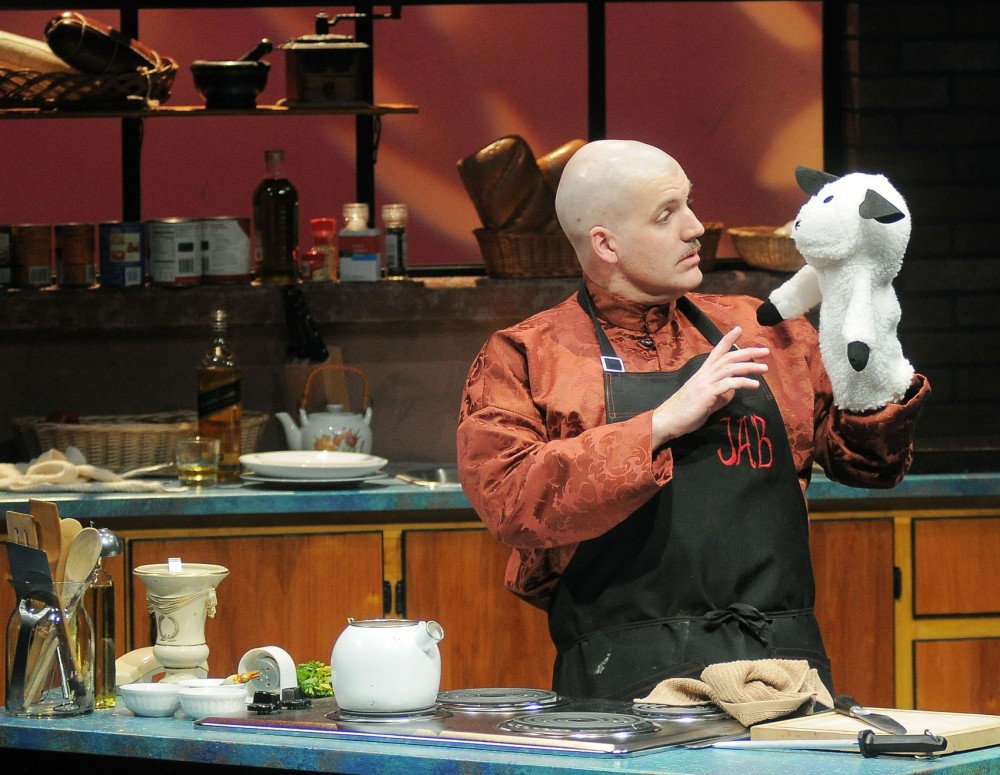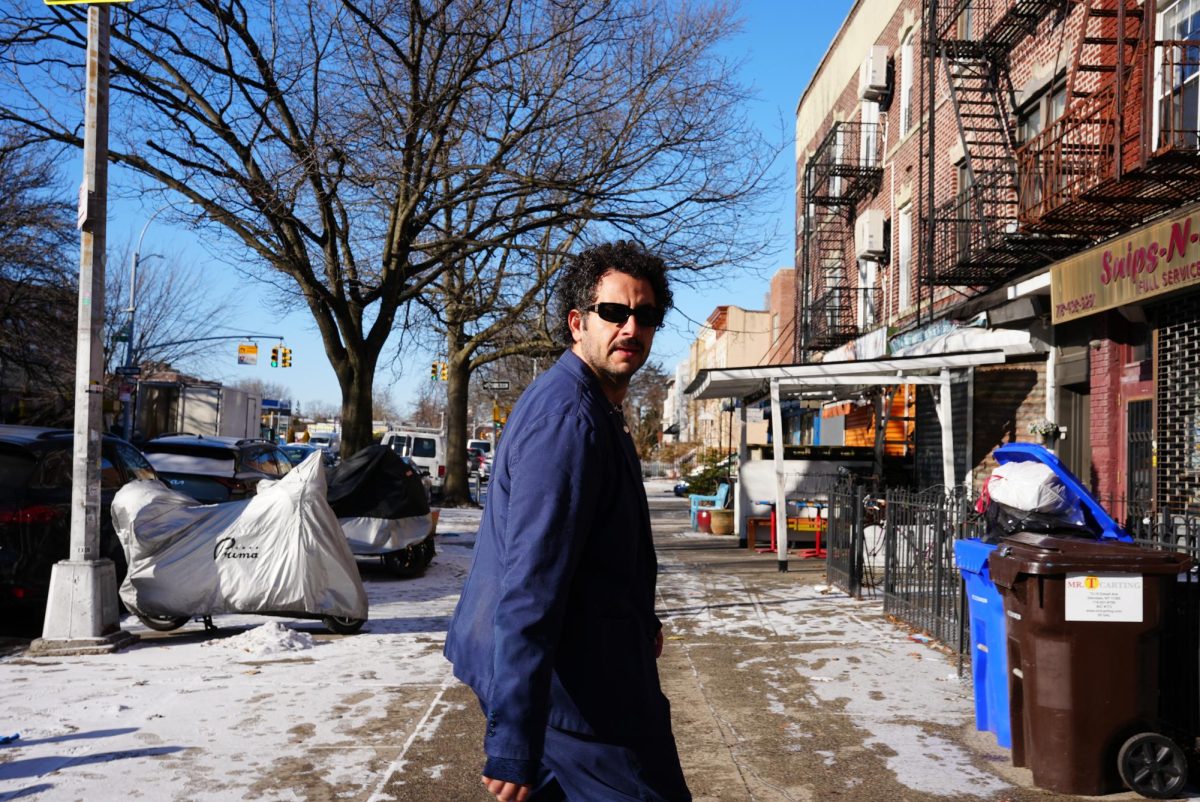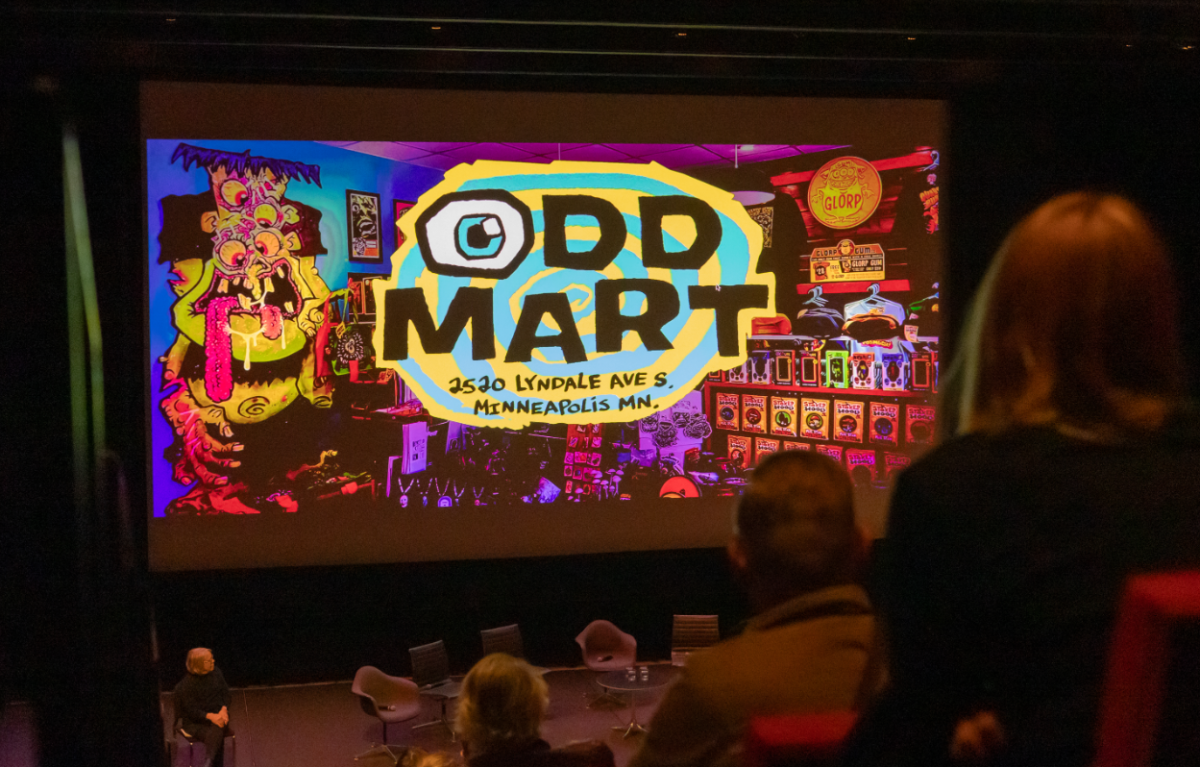What: “I Love to Eat: a Love Story With Food”
Where: Illusion Theater, 528 Hennepin Ave., Minneapolis
When: Times vary, Thursday through May 18.
Cost: $5-28
Two men sit facing each other on the stage of the Illusion Theater going over a set of notes. The topic at hand is how to properly chop onions. Director Michael Robins tells actor Garry Geiken it was OK that onions were scattered all about the counter top that faces the audience.
“I hate that kind of theater that’s so neat when life isn’t neat,” Robins said.
Robins, artistic director of the Illusion Theater, was drawn to James Still’s play “I Love to Eat” because so little was known about James Beard outside of his culinary achievements.
“We’re in a period right now where everyone is a foodie, and here’s a guy who started it for us, and we don’t really know anything about him,” he said.
The play, set toward the end of Beard’s life, takes place in the middle of the night at Beard’s apartment. Through phone conversations and trips down memory lane, the audience fully experiences the private and public sides of Beard.
Geiken, admittedly not a foodie, studied cookbooks and cooking shows to accumulate culinary knowledge. He also had a lesson with Twin Cities chef Seth Bixby Daugherty to hone his knife skills and kitchen etiquette.
Now, wearing a fat suit and robed in burgundy velveteen pajamas, Geiken makes a convincing chef in his at-home, late-night kitchen.
Robins explained that Beard was so accessible to so many because his recipes were simpler than others of that era.
“He talked about cooking and cookery not haute cuisine,” he said.
Geiken agrees that Beard’s lessons in cooking were ahead of their time.
“He had the desire to connect simply with people and through that are the culinary progressive ideas that have come down to us from him — simplicity, local, fresh ingredients and very little fuss,” he said.
As it turns out, although Beard was a jovial and enthusiastic character in the public eye, he struggled in his private life.
Beard, like many celebrities of his era, harbored the secret of being a closeted man. Although the play deals with this sadness, it focuses more on Beard’s jovial spirit. Robins explains that although Beard’s full story was never brought to light while he was living, he tried to live a full life.
“He loved life so much he wasn’t a character that was going to be a Walter Mitty,” he said.
As a young man, he wanted to be an opera singer but simply didn’t have the talent. Unable to pursue that career path, Beard turned to food.
“I think that he was a very important man in his world, but his world wasn’t his first choice,” Geiken said.
Beard is now a legend in the culinary world. The highest level of culinary awards are named for his foundation, as is a house in New York City that’s one of the most prestigious places a chef can be invited to cook. Most importantly, he pioneered the TV chef personality structure that now dominates the Food Network, the Cooking Channel and network television.
Geiken explained that he feels Beard’s success was an outcome of his big spirit.
“He had a huge appetite for all things: for culture, for food, for conversation, for fame, for connection,” he said.














